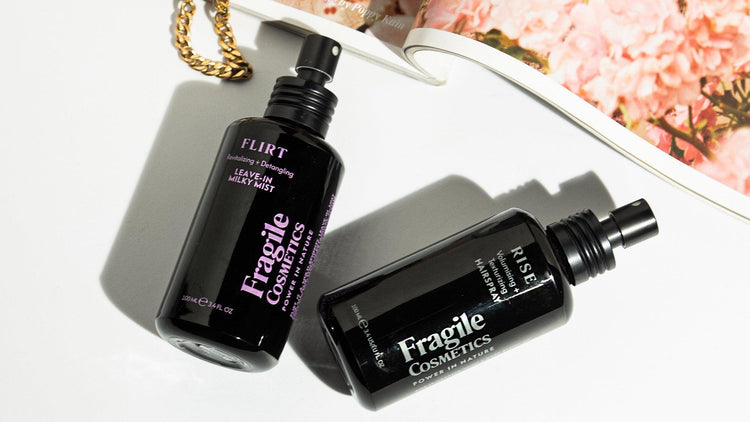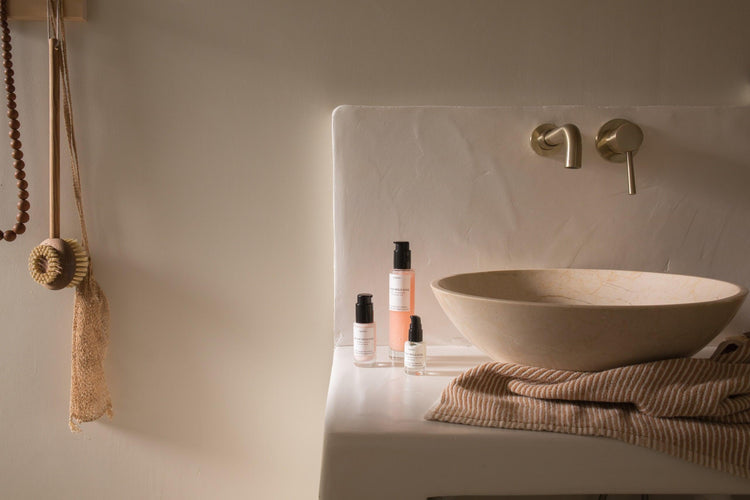Discover them:
Titanium dioxide, what is it?
Don't worry, we'll spare you the chemistry lesson! To put it simply, just know that titanium dioxide ( TiO2 for friends) is a mineral that is found in nature in different forms, mainly in South Africa and Australia. Composed of titanium and oxygen, it is a white powder composed of more or less large particles.
And this is where the problem begins! Titanium dioxide exists in a micrometric form and a nanometric form . In this case, it notably contains nanoparticles , ie particles 10,000 times smaller than a hair. It is these famous nanoparticles that are incriminated by detractors of titanium dioxide.
And what is this titanium dioxide for?
Almost everything! Titanium dioxide is indeed used in large quantities in the food industry, but also in the pharmaceutical industry and in cosmetics . It is also found in the building and works industries , in particular for paints and pigments.
It must be said that it has excellent properties that make it the darling of manufacturers. Titanium dioxide absorbs ultraviolet rays and has a very strong white coloring power . It is also resistant to chemicals and shows good thermal stability . In short, he is a star…
Your toothpaste is ultra white? There is a good chance that it contains a dose of titanium dioxide… Just like your sunscreen products… the white paint of your driveway, the plastic boxes, the facade plaster of your house, as well as a lot of medicines that you ingest and an impressive number of sweets, cakes, ready meals...
ANSES (National Agency for Food, Environmental and Occupational Health Safety) indicates that 10,000 tonnes of titanium dioxide are produced or imported into France each year, a quantity that sends shivers down your spine. it turns out that this product is really dangerous for our health...
In food , titanium dioxide is hidden under the name E171 . In 2017, the Agir pour l'environnement association identified hundreds of consumer products containing this additive. To date, you can see on their site that many brands have removed E171 from their products. But there are still many left, not to mention those who are not yet identified. You can also become a nano detective and help the association flush out E171!
So why is titanium dioxide so outraged?
Blame it on the nanoparticles! These microscopic particles can indeed discreetly infiltrate almost everywhere in our body... As early as 2006, the IARC (International Agency for Research on Cancer) indicated titanium dioxide as a "possible carcinogen for humans" by inhalation (category 2B ) (after tests on rats). Colon and rectal cancers are possible consequences of regular ingestion of nano titanium dioxide. ANSES for its part recommends a precautionary principle.
There is therefore a major risk for people who produce products containing titanium dioxide , whose ultra-fine dust impregnates the environment and therefore… the lungs.
Already banned in aerosols and products presenting a risk of inhalation, titanium dioxide sparked fierce controversy last year. An outcry in the media, health organizations and associations moved the government, which finally backed down before changing its mind again. It must be said that the studies commissioned return uncertain results and that we remain most of the time in “perhaps”, with little certainty and proof. However, we can also ask ourselves the question of the precautionary principle : should we wait to have proof by 9 that a product is harmful to withdraw it from the market? Or is it more reasonable to remove it as soon as you have a doubt, even if it means reintroducing it afterwards if the doubt is removed?
The use of titanium dioxide in cosmetics
In cosmetics, titanium dioxide hides under another name, and is therefore more difficult to flush out. If you find the mentions “ titanium dioxide ” or “ CI77891 ” on the packaging of your product, you are there! The mention [nano] is mandatory if the product is used in this form.
This titanium dioxide is used as an opacifier or colorant, mainly for foundations and for sunscreen products for which it is very effective, since this additive is inert and allows it to disperse, reflect and absorb UV rays. Bonus, it is non-allergenic and non-photo-allergenic. It would therefore be wrong to deprive ourselves of it!
In 2017, the magazine Que Choisir spoke of more than 4000 drugs concerned! Unfortunately, we haven't found a precise number as of today… Note that CI77891 is not prohibited by the specifications for organic cosmetics.
For cosmetics and in particular toothpaste , it is therefore not joy. Acting for the environment indicates all the toothpastes that still contain titanium dioxide today : nearly 300 products from well-known brands… Only one brand has removed the additive from its products! The others get away with a somewhat specious argument for our taste: indeed, as toothpaste is not supposed to be ingested when brushing your teeth, but spat out, we can consider that it is not there is no danger of ingestion... All parents of young children will tell you that our toddlers swallow their toothpaste in sometimes impressive quantities, especially since they are offered with strong and sweet tastes which almost assimilate them to candies !
Our advice to find your way : with the Yuka app or with Open Food Facts to download on your smartphone, you will detect the products to avoid while shopping.
And on the skin? Is titanium dioxide harmful?
It is in its nanoparticle form that it is dangerous and can penetrate the skin and pass the protective barriers of the intestines, the lungs or the liver... And only on damaged or very permeable skin, such as that of very young children. .
It is mainly sunscreen products that use this nano form, creams and foundations being able to make do with classic titanium dioxide.
Today, titanium dioxide is authorized for all cosmetics , but its dosage is limited to 25% of the total of the formula when it is used as a UV filter, even for organic products.
For other cosmetic products, well… this controversial product is perfectly authorized! However, you can favor organic cosmetics, which offer other stricter restrictions on the size of the particles accepted.
The good news
After back and forth and changes in decision by the French government, this controversial additive will finally be banned for sale in France from January 1, 2020 .
But (we must not dream despite everything, huh!) this ban only concerns food products , and not medicines, toothpaste or of course cosmetic products…
It would seem that we are able to ingest large doses of food products containing this famous E171 (give me some M&Ms!), which the consumer does not do with drugs, for which we also apply the principle of benefit /risk… It seems that once again, certain lobbies have weighed in the balance of a reasonable decision.
In short, you have understood (finally, we hope!) the controversy over titanium dioxide comes from the confusion made by consumers (and sometimes the media) between products containing the microparticle form and the nanoparticle form.
You can therefore calmly continue to use your cosmetic products containing titanium dioxide in its microparticulate form. But be careful and avoid products containing the nanoparticle form of titanium dioxide (indicated with the inscription [nano] in front of the ingredient name) as much as possible.
To date, the cosmetic industries are looking for a derivative in the nanoparticle form of TiO2, but it seems that the solutions found are not yet really satisfactory, with chemicals that could be worse, for example suspected of containing endocrine disruptors...
Find out more (with simple explanations): Why be wary of nanos?













